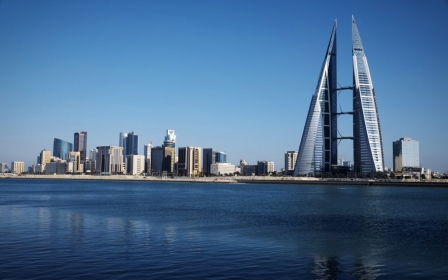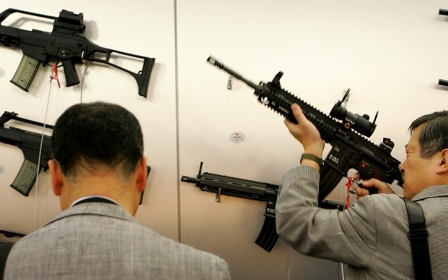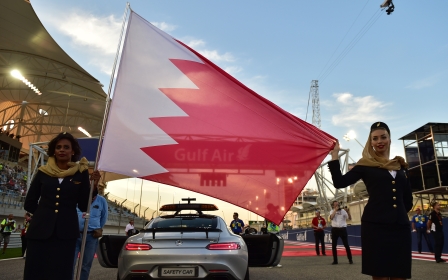Israel's chief rabbi of Jerusalem visits Bahrain in sign of growing ties

Israel's Chief Rabbi of Jerusalem Shlomo Moshe Amar concluded a visit to Bahrain this week, the first in the history of the two countries, during which he met King Hamad bin Isa al-Khalifa, Mako news reported.
Amar, who is former chief Sephardic rabbi of Israel, conveyed to the king “greetings from Jerusalem”, according to the Israeli news site.
The rabbi was invited to a US-led interfaith forum and entered the kingdom on a special permit.
He told the forum that “people of the Middle East want peace with Israel and good relations”, in the latest instance of growing ties between his country and Gulf Arab states.
Clergy and religious figures from Qatar; Kuwait; Jordan; Lebanon; Egypt; Russia; the United States; Italy; India and Thailand all attended the forum.
New MEE newsletter: Jerusalem Dispatch
Sign up to get the latest insights and analysis on Israel-Palestine, alongside Turkey Unpacked and other MEE newsletters
'A blessing from Jerusalem will lead to a solid relationship with the State of Israel'
- Shlomo Moshe Amar, chief rabbi
“Clerics are responsible for promoting peace,” Amar said.
The rabbi also visited the only synagogue in the Bahraini capital of Manama, ultra-orthodox news site Kikar reported.
Mako quoted Amar as telling King Hamad that he hopes Israelis and Bahrainis will soon be able to visit each other without special permits.
"A blessing from Jerusalem will lead to a solid relationship with the State of Israel," he told the king.
Israel has formal diplomatic relations with only two Arab states, neighbouring Egypt and Jordan.
Like other Gulf states, Bahrain has no official ties with Israel. However, Israel and countries such as Saudi Arabia and the United Arab Emirates are in the midst of a diplomatic push aimed at allying against their common regional enemy, Iran.
In June, US President Donald Trump's son-in-law Jared Kushner led the controversial “Peace to Prosperity” workshop in Manama, aimed at promoting a financial solution for the political conflict in Israel and Palestine.
Many Arab states, including Palestine, Lebanon and Iraq, boycotted, while Gulf states sent low-level officials.
Middle East Eye delivers independent and unrivalled coverage and analysis of the Middle East, North Africa and beyond. To learn more about republishing this content and the associated fees, please fill out this form. More about MEE can be found here.




